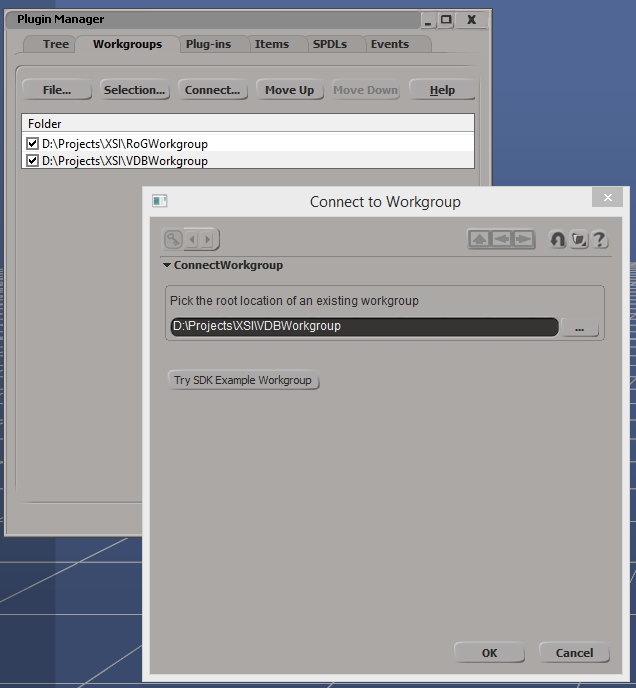Maya 2016 ships with Arnold now. Good bye, Mental Ray
SIGGRAPH 2016 is full of surprises.
Autodesk announced that with Maya 2016 they decided to ditch Mental Ray and replace it with Arnold. I gotta say... Of all things AD did over the years...
This is kinda cool.
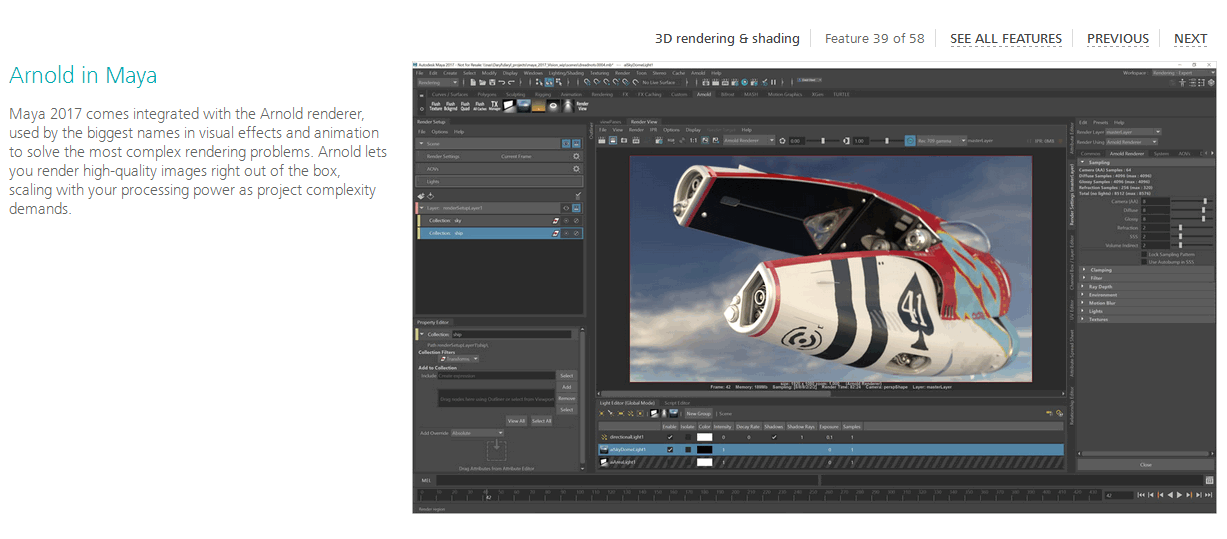
Still, AD being AD, batch rendering will cost you extra.
Luckily, interactive rendering (that is rendering from Maya) doesn't require a separate Arnold license. This means that Maya now comes with probably the most renowned production rendering solution (albeit CPU-only) by default.
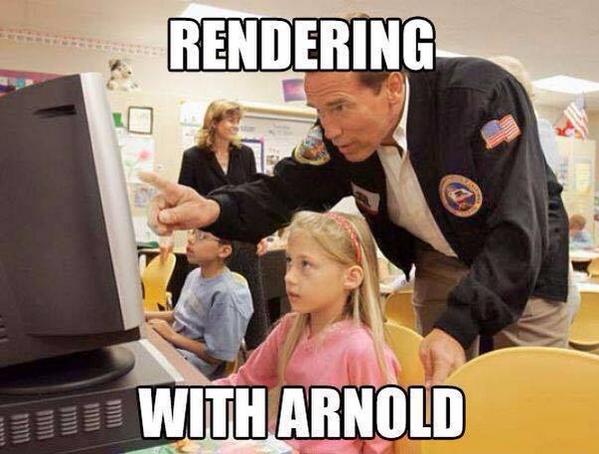
Not bad... Not bad at all, AD.
Run and Rock-it Kristie now completely free on the App Store
Run and rock-it Kristie, a "rayman-esque" iOS platformer was the first game I released publicly. Making the game was quite an experience, but seeing people actually play it was something else.
Less than a week after release it was featured on the European App Store as one of the best games of the week for iPad which was cool as hell.

Over half a year has passed since and I think it's time to let everyone experience the whole game for free. In the initial version only the first tour was available free of charge, and it wasn't the most exciting one of them all, which didn't quite let people truly experience the game and its mechanics. Hence, last week I finally decided to remove the only in-app purchase from the title and make it free for everyone to enjoy.
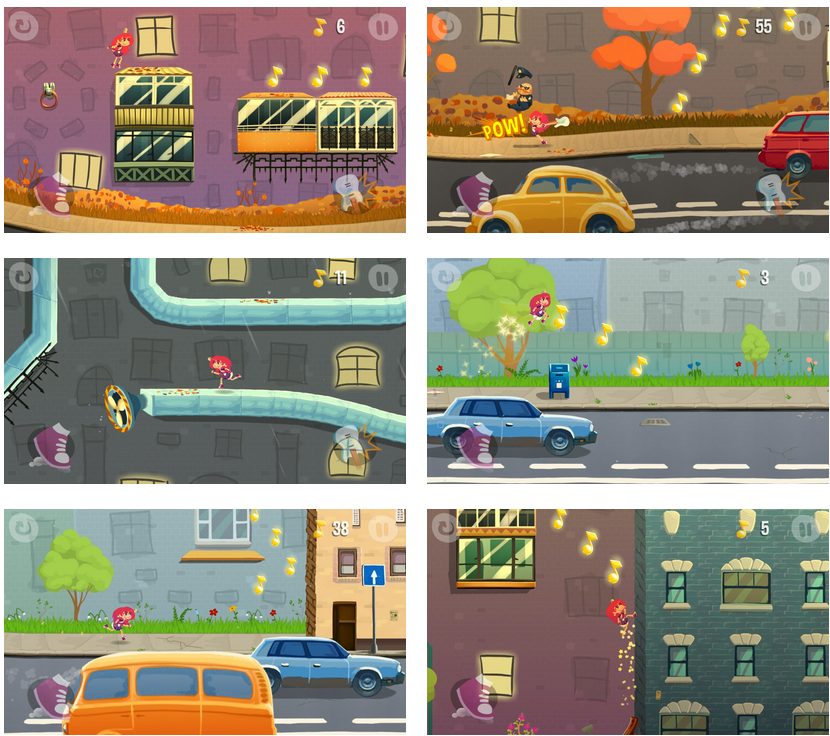
So grab a copy of the game for yourself or your kids and have fun =)

And maybe... Just maybe... Android port of the game might be in the works ;)
HDR Image Manipulation for Free With GIMP 2.9
Lately I've been playing around with HDRI maps and creating my own 360 HDR panos to use for image-based lighting with Redshift.
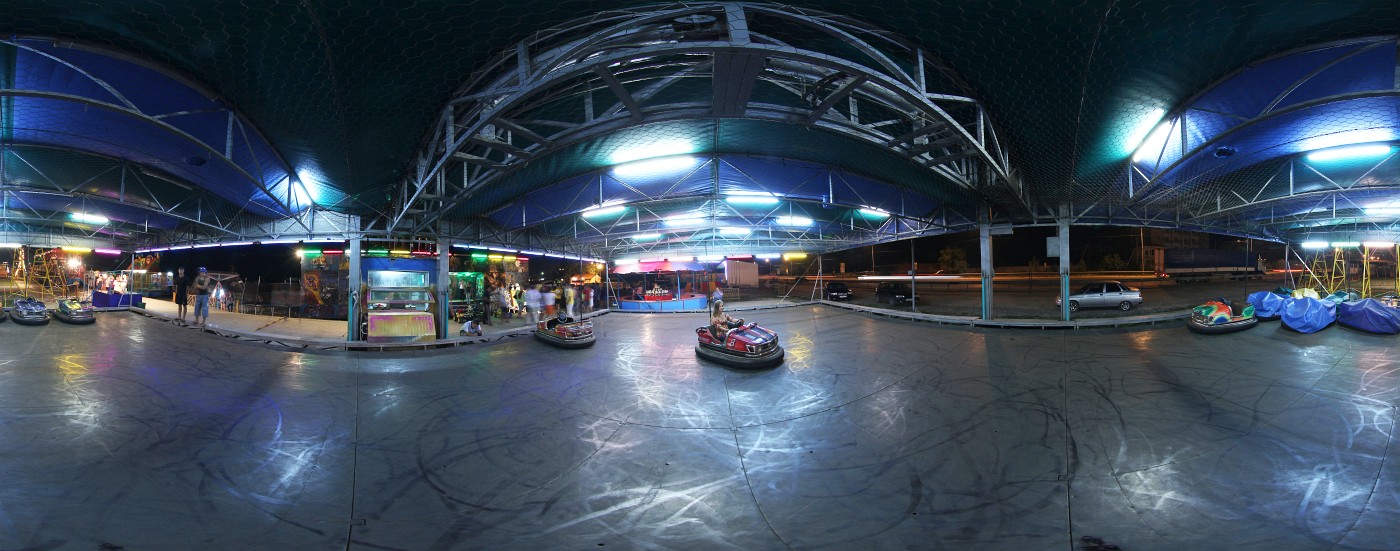
I quickly realized that some of those maps would need to be tweaked a bit for a better result. For that you need some piece of software... like Photoshop for example. Unfortunately Photoshop costs money and even with subscription may not be the best choice for a hobbyist on a budget. Besides, Photoshop isn't the only tool on the market that can do this, right?
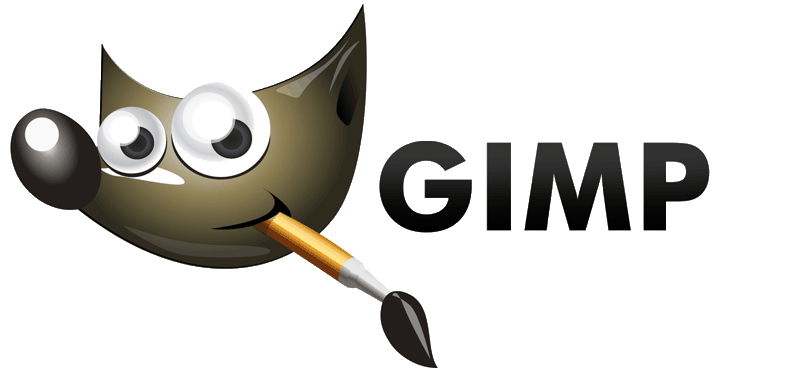
I then turned to GIMP only to find out that current stable version didn't support floating point image manipulation of any kind. What I didn't know was that GIMP team have been long working on the new color management implementation which would support HDR workflows and more!
Turns out a week ago they actually released the 2.9.4 version of GIMP with numerous improvements over the 2.8.x branch. At the moment it's only available in the form of a development snapshot in git, but if you wish to give it a go right away without compiling it yourself, you can try out the experimental GIMP builds from partha.com.
Using Cloth Simulation and Delta Mush Deformer for Skin Collision in Animation
I'd like to present the results of a study I conducted recently:
Story
Working on the animated short film I am constantly updating a list of tasks to do in order to achieve a descent final result. One particular topic took my sleep away recently when I remembered that in order to correct skinning errors on animated characters you'd either have to sculpt and then script a bunch of blend shapes or would need a muscle system available in your DCC software.
I then turned to Maya, which has had a muscle system for ages.
Maya Muscle system
Maya provides several deformers to manage soft- and hard-tissue interaction between muscles like smart-, self- and multi-object collisions. Even though they aren't terribly performant, they get the job done.
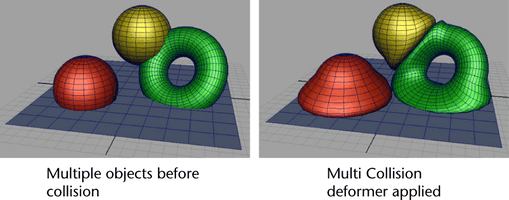
Unfortunately as soon as I would've used any of Maya's Muscle system tools I'd be tied down to a 185$ a month subscription plan for the whole duration of the project which would be outrageous. There is a lite-version of Maya available for indie gamedevs — Maya LT — which only costs 30$ a month, but it doesn't come with the Muscle system.

Hence I had to improvise and develop a simple and straightforward solution for this problem in a DCC of my choice.
VDB cloud with Softimage ICE and Redshift - a step-by-step tutorial
Since my first post about Softimage and OpenVDB was more of a brief overview than a tutorial, I decided to create a step-by-step guide on how to create a .vdb cloud-like grid with Softimage ICE using Mr.Core's (Oleg Bliznuk's) compounds and explain how they work on the way.

To follow the tutorial, download the compounds and connect the extracted workgroup in Softimage (File -> Plugin Manager -> Workgroups -> File -> Connect):
GPU CUDA render farm speed/cost comparison chart (june 2016)
Out of curiosity decided to quickly compare the cost and rendering performance of several CUDA-capable GPUs.
Scores taken from the official OctaneBench results database. Prices - from local online merchants in my area (TAX, VAT included) so your mileage may vary. I used my GTX 970 results as reference. The fact that it's one of the most popular enthusiast-grade GPUs on the market also helps.
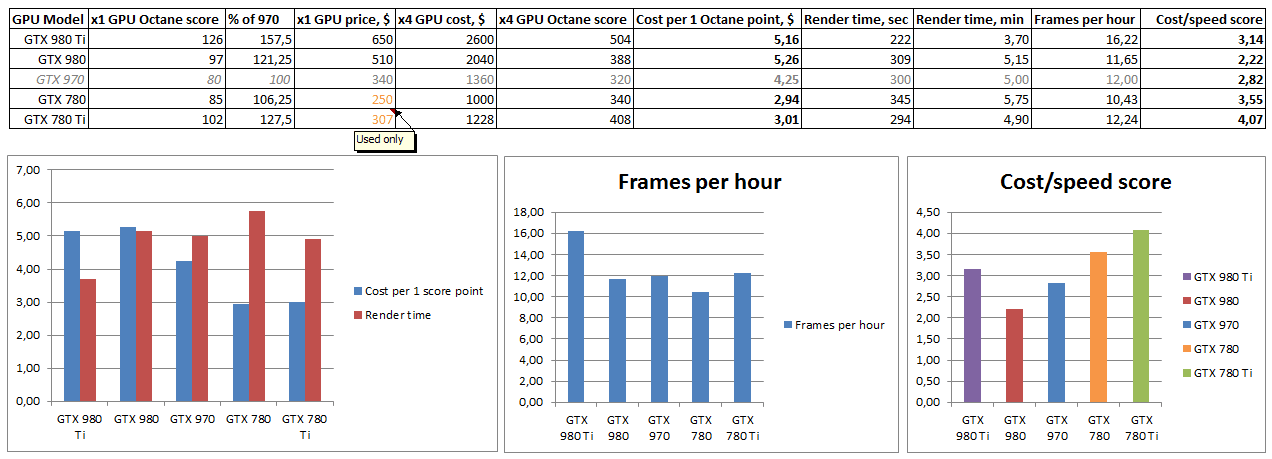
I didn't account for the power consumption because electricity rates vary a lot from area to area so if you're planning to run your render farm 24/7 (which is not recommended) you can look into it yourself.
(Used) NVIDIA GTX 780 Ti is a clear winner here. So if you're thinking about building a render farm to use with Octane or Redshift, check it out, it's a bargain.
As soon as GTX 1080 CUDA-compute/rendering results become available I will add them to the chart. Don't expect a miracle though. Preliminary benchmark results from various forums including Redshift and Lexmark show that GTX 1080 is pretty much just a tad faster than 980 Ti and Titan, and in some heavy scenes it can actually be slower than the two! Hope it's just a driver problem and we'll see at least 20-25% improvement over the previous flagship models as promised by NVIDIA.
Otherwise it will be a grave disappointment.
Eric Thivierge's blog post on Softimage EOL: a year later
It's been over a year since Eric Thivierge, talented TD and creator of Species for Softimage as well as a set of other powerful tools, shared his feelings on Softimage XSI EOL.
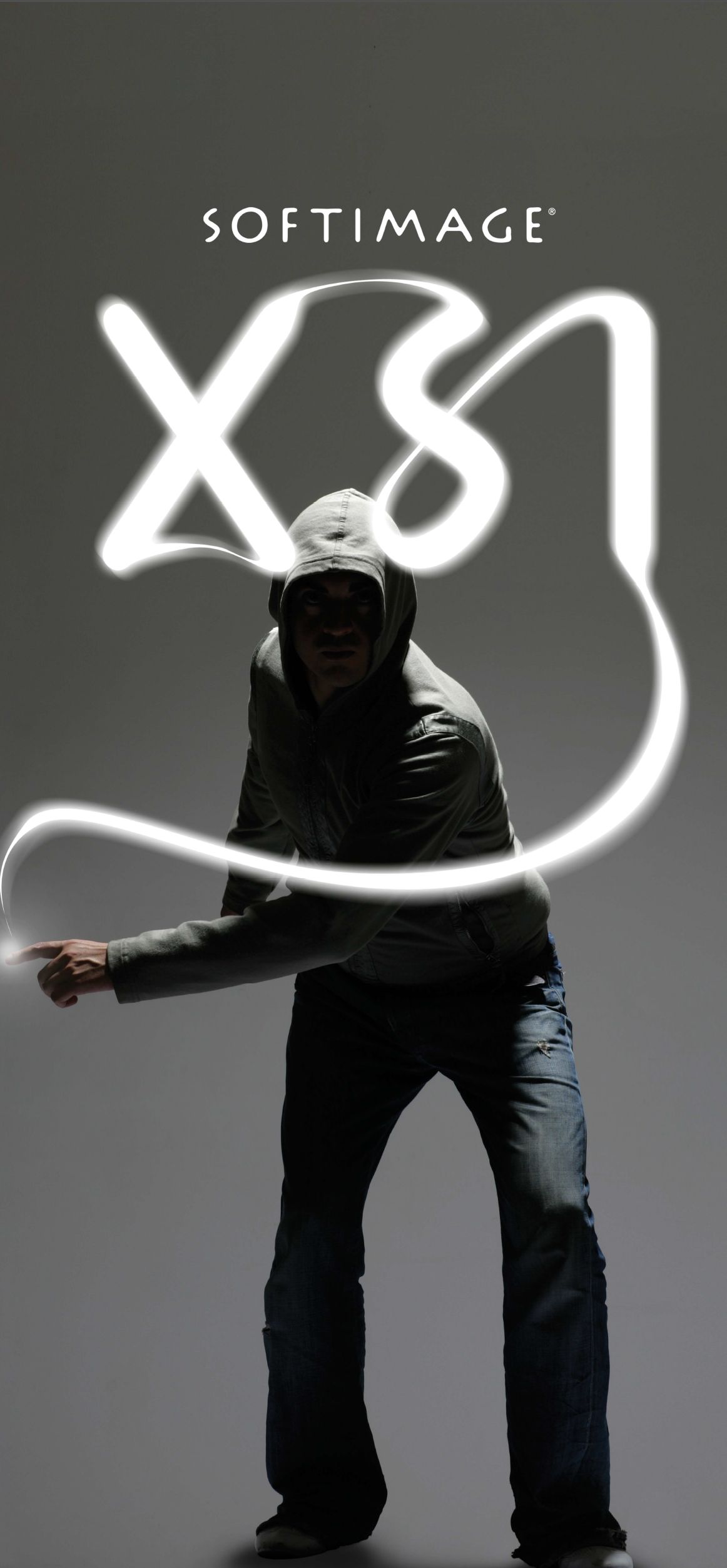
First I'd like to post this quote because it perfectly reflects my feelings on the subject:
At this point I’d like to take the opportunity to say that I truly believe that Softimage got user interaction and a non-linear flexible workflow right. No other application I’ve used has anything close. The construction stack, ICE, native Object Oriented API, and countless other features go unmatched. I don’t want to use another application and it’d have been great to go my entire career not having to transition over to something else. The idea to end Softimage was one of the worst I could imagine and it was handled really poorly by Autodesk. They didn’t even have comparable replacements for things such as ICE. We’re still waiting for this stuff in Maya while other companies have been able to fly past with relative ease and implement similar workflows.
I want to comment on some of Eric's thoughts on the topic of moving on. The reasons mainly. Of course I am not an industry professional and just a hobbyist. I don't have to adapt to the DCC market, so this post should be taken with a grain of salt.
